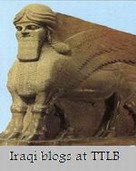Mahmoud Darwish dies
Palestinian poet Mahmoud Darwish dead at 67August 09, 2008 2:44 PM EDTGAZA CITY, Gaza Strip - Mahmoud Darwish, the world's most recognized Palestinian poet, whose prose gave voice to the Palestinian experience of exile, occupation and infighting, died on Saturday in Houston, Texas. He was 67.The predominant Palestinian poet, whose work has been translated into more than 20 languages and won numerous international awards, died following open heart surgery at a Houston hospital, said Nabil Abu Rdeneh, a spokesman for Palestinian President Mahmoud Abbas.Born to a large Muslim family in historical Palestine - now modern-day Israel - he emerged as a Palestinian cultural icon who eloquently described his people's struggle for independence, and as a vocal critic of both the Israeli occupation and the Palestinian leadership. He gave voice to the Palestinian dreams of statehood, crafted their declaration of independence and helped forge a Palestinian national identity."He felt the pulse of Palestinians in beautiful poetry. He was a mirror of the Palestinian society," said Ali Qleibo, a Palestinian anthropologist and lecturer in cultural studies at Al Quds University in Jerusalem.Darwish first gained prominence in the 1960s with the publication of his first poetry collection, "Bird without Wings." It included a poem ("Identity Card") that defiantly spoke in the first person of an Arab man giving his identity number - a common practice among Palestinians when dealing with Israeli authorities and Arab governments - and vowing to return to his land.Many of his poems have been put into music - most notably "Rita," "Birds of Galilee" and "I yearn for my mother's bread" - and have become anthems for at least two generations of Arabs.He wrote another 21 collections, the last in 2008, "The Impression of Butterflies."Qleibo described Darwish's poetry as "the easy impossible," for Darwish's ability to condense the Palestinian narrative into simple, evocative language - breaking away from the more traditional heavy, emotive and rhythmic verse of other Arab poets.Darwish wrote the Palestinian Declaration of Independence in 1988, read by the late Palestinian leader Yasser Arafat when he unilaterally declared statehood. The declaration was symbolic and had no concrete significance.Darwish's influence was keenly felt among Palestinians, serving as a powerful voice for many."He started out as a poet of resistance and then he became a poet of conscience," said Palestinian lawmaker Hanan Ashrawi. "He embodied the best in Palestinians ... even though he became iconic he never lost his sense of humanity. We have lost part of our essence, the essence of the Palestinian being."Last year, Darwish recited a poem damning the deadly infighting between rival Palestinian groups Hamas and Fatah, describing it as "a public attempt at suicide in the streets."Darwish was born in the Palestinian village of Birweh near Haifa that was destroyed in the 1948 Mideast war that led to Israel's independence. He joined the Israeli Communist Party after high school and began writing poems for leftist newspapers."When we think of Darwish ... he is our heart, and our tongue," said Issam Makhoul, an Arab lawmaker and veteran member of the Israeli Communist Party,Darwish left Israel in the early 1970s to study in the former Soviet Union, and from there he traveled to Egypt and Lebanon. He joined the Palestine Liberation Organization but resigned in 1993 in protest over the interim peace accords that the late Palestinian leader, Yasser Arafat, signed with Israel. Darwish moved to the West Bank city of Ramallah in 1996.His work is widely admired on the Arab and Palestinian street. In Israel, it evokes different feelings.In 2000, Israel's education minister, Yossi Sarid, suggested including some of Darwish's poems in the Israeli high school curriculum. But Prime Minister Ehud Barak overruled him, saying Israel was not ready yet for his ideas in the school system.In 1988, a Darwish poem, "Passing in Passing Words," was read by then-Israeli Prime Minister Yitzhak Shamir inside Israel's parliament as an example of the Palestinians' unwillingness to live alongside Jews. The poem suggested that Darwish called for Jews to leave the region.Adel Usta, a specialist on Darwish's poetry, said the poem was misunderstood and mistranslated."He created a national Palestinian identity that no other poet could achieve," Usta said.Darwish married and divorced twice. He does not have any children.Siham Daoud, a fellow poet and longtime friend of Darwish, said he traveled to a hospital in Houston, Texas, ten days ago for the surgery and asked not to be resuscitated if it did not succeed. She said Darwish had a history of heart problems, and has been operated on twice in the past.Akram Haniyeh, Editor-in-Chief of the Al Ayyam newspaper and a close friend of Darwish, was by Darwish's bedside in Houston. He said Darwish underwent an operation on Wednesday and there were complications.Copyright 2008 The Associated Press. All rights reserved. This material may not be published, broadcast, rewritten or redistributed.© 2008 EarthLink, Inc. All rights reserved.





.jpg)








 -->
-->